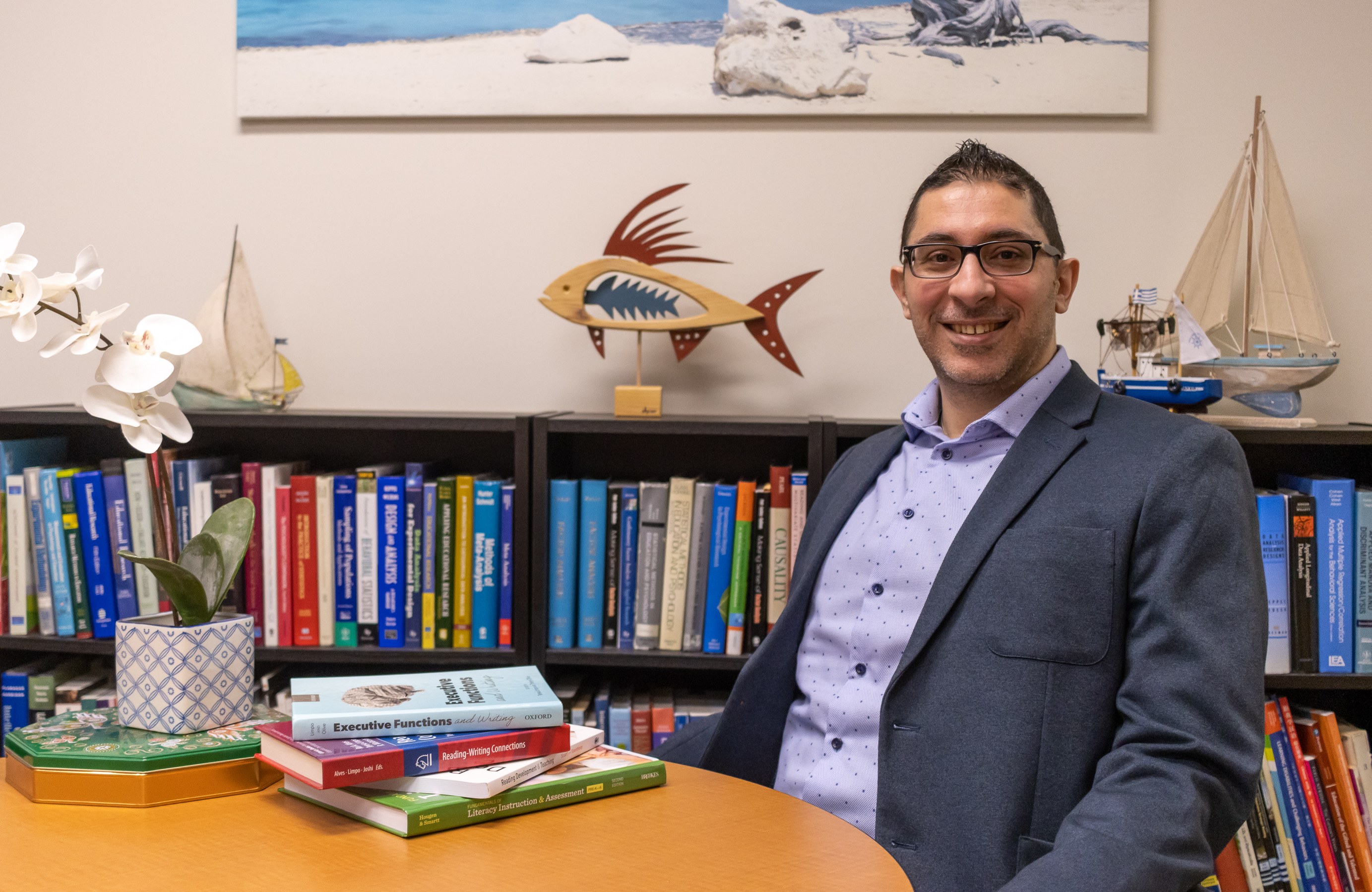After declining in the early days of the COVID-19 pandemic three years ago, the reading ability of a group of Alberta elementary students has bounced back to pre-pandemic levels following an intervention program designed by a University of Alberta literacy specialist and his team.
“This is the first time we have seen positive data for students’ performance following the pandemic, so there is reason for optimism,” says George Georgiou, professor in the Faculty of Education.
Georgiou has been measuring the reading performance of students in Alberta since 2008, while introducing an intervention program of evidence-based teaching practices to help those struggling to read.
When he tested students in the fall of 2020, he found that only the performance of those in grades 1 to 3 had declined since the pandemic began. The performance of older children in grades 4 to 9 had either remained the same or improved.
The skills of those in the lower grades were, on average, eight months to a year below grade level, says Georgiou, adding that remote learning and a lack of direct intervention for the struggling readers had taken a negative toll.
With his intervention program, consisting of face-to-face mentoring by teachers four times a week for half an hour, 80 per cent of the children improved their reading level by about a year and a half in 4.5 months. The program was field tested with 352 struggling readers in grades 2 and 3 from the Greater St. Albert Catholic, Black Gold, Fort Vermilion and Lakeland Catholic school divisions. The field testing was co-ordinated by Georgiou's doctoral student Kristy Dunn.
A literacy specialist and elementary teacher in Alberta for more than 15 years, Dunn is also the creator, developer and author of the intervention program, part of her doctoral dissertation. She is also on the Learning Disabilities Association of Alberta's board of directors and co-author with Georgiou of Pearson Education's Phonics Companion.
Using the method with trained teachers — while exposing kids to “decodable text” designed for beginning readers — “you can work miracles,” he says.
Georgiou’s reading intervention involves combining phonological awareness (the ability to perceive and manipulate speech sounds) with phonics (the ability to map letters to sounds) and shared book reading.
“It's like every child has their own reading doctor,” says Georgiou. “Whatever their weaknesses are, the teacher will be providing the right kind of instruction. Lo and behold, these kids are improving much more than others in the province.”
In the participating schools, teachers attend ongoing professional development seminars on evidence-based early literacy instruction they may have not received in their undergraduate programs. Principals meet regularly to target areas of further professional development for their teachers.
In line with Georgiou’s results, Alberta Education is now asking schools to test all students in grades 1 to 3 in reading, and providing more than $45 million for schools to deliver reading intervention.
The idea for Georgiou’s procedure was hatched when he and his neighbour first met while mowing their lawns. Over the backyard fence, Georgiou explained he was a new professor in education at the U of A.
His neighbour replied that he was a school principal, asking, “Why don’t you professors produce anything useful for schools?”
So Georgiou offered to set up a program at his neighbour’s school to train teachers on how to best teach reading. From there it grew to five schools, then to 50, and eventually expanded to include 15 school divisions across the province and beyond, including Manitoba and even the country of Belize.
Georgiou has now been asked to write a report on the impact of COVID-19 on children's academic achievement in Canada, commissioned by the Royal Society of Canada and UNESCO Canada, with hopes that his procedure on early prevention and intervention will spread across the country.
“We now have principals who are fully on board, interventionists who are highly trained and literacy consultants who know what they're doing,” he says, adding that he has had calls from parents across the province thanking him for making his program available to all Albertans.
“Is there a better thing than creating competent readers? If you can read, you can master everything,” he says. “If you can’t, it’s devastating. It will be with you for the rest of your life.”
